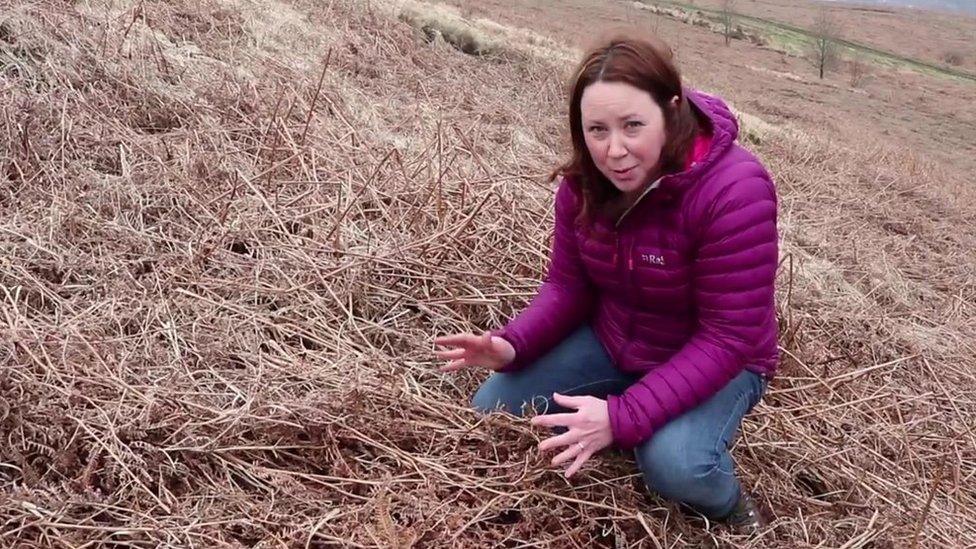Grass fires: Wales' resources stretched by 'burn season'
- Published
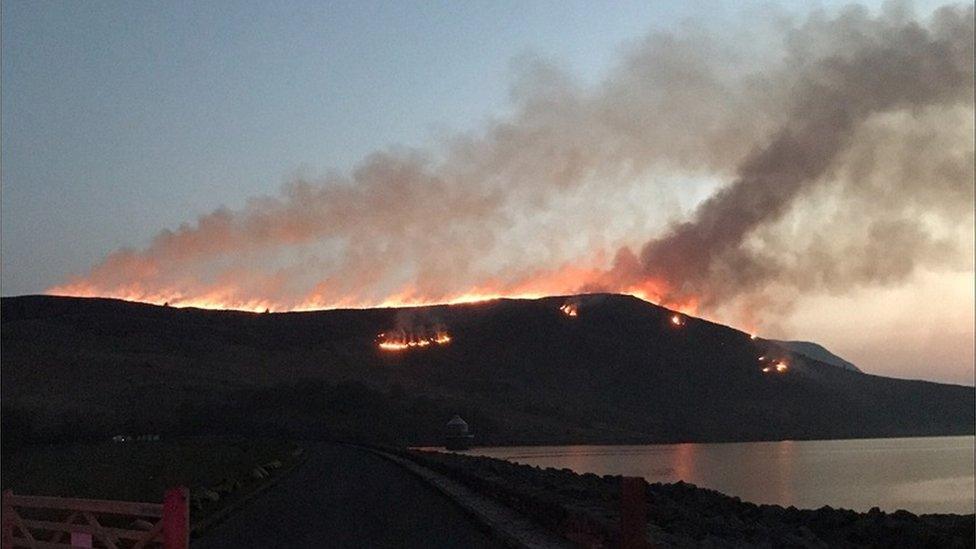
A wildfire has damaged about 73 hectares (180 acres) of land at Rhyd Uchaf, Gwynedd
More than 200 grass fires in recent weeks have left resources "very stretched," one Welsh fire service has said.
Many have been deliberate but legal, because during "burn season" controlled fire is used for land management.
However, if firefighters do not know they are due to take place, they can waste their time by attending.
Neil Evans, of Mid and West Wales Fire and Rescue Service, said this was "a significant problem".
Burn season continues until the end of March.
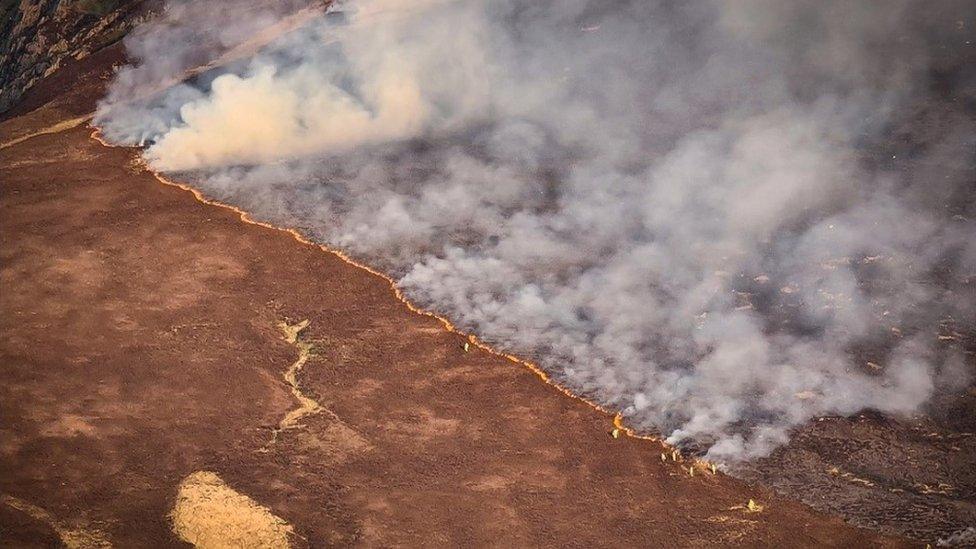
More than 200 grass fires in recent weeks have left resources "very stretched", including this at Mynydd Mawr
Eight fire engines and a helicopter have been fighting a wildfire which has caused "significant land damage" over about 73 hectares (180 acres) at Rhyd Uchaf, Gwynedd, over the past 24 hours, although it is now under control.
A controlled burn which "escalated into a wider area is suspected to have caused the fire", according to North Wales Fire and Rescue Service.
A Natural Resources Wales helicopter has been collecting water from a local reservoir and dropping it on the fire, while crews fought the fire with beaters.
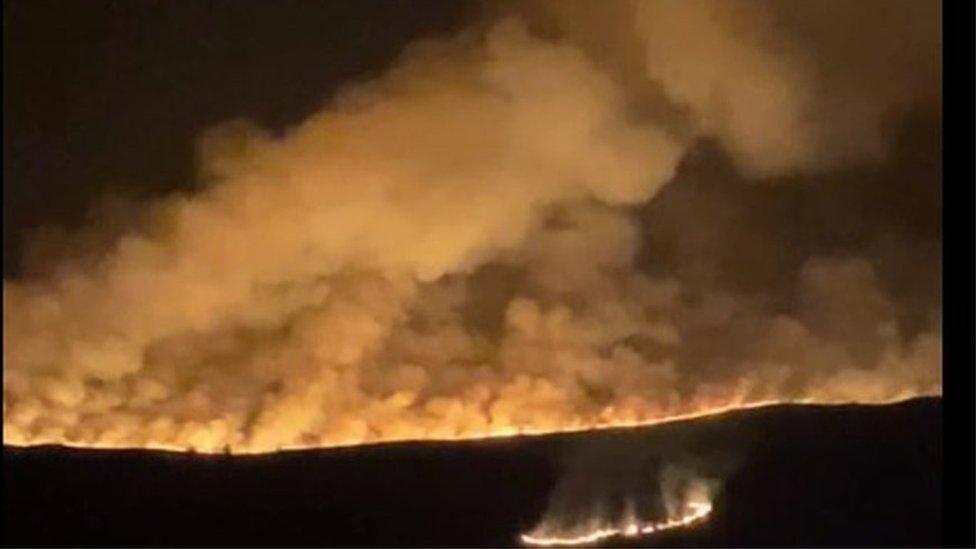
The fire burned overnight at Mynydd Nodol
"All this lovely dry weather we're all enjoying has meant we've got landowners and farmers who need to use fire as part of their land management," Mr Evans said.
"We're within the burn season which finishes at the end of this month.
"But if we're not informed of these controlled burns, then people dial 999, call the fire service and we have significant resources allocated to these fires.
"We wouldn't have to be there if we were informed of a controlled burn."
Mr Evans spoke to BBC Wales from the foot of the Black Mountain, in the Amman Valley, Carmarthenshire, where fire damaged common land after wind helped it spread and crews spent six hours extinguishing the blaze.
"People are being irresponsible in lighting the fires and not doing it in a controlled manner," he said.
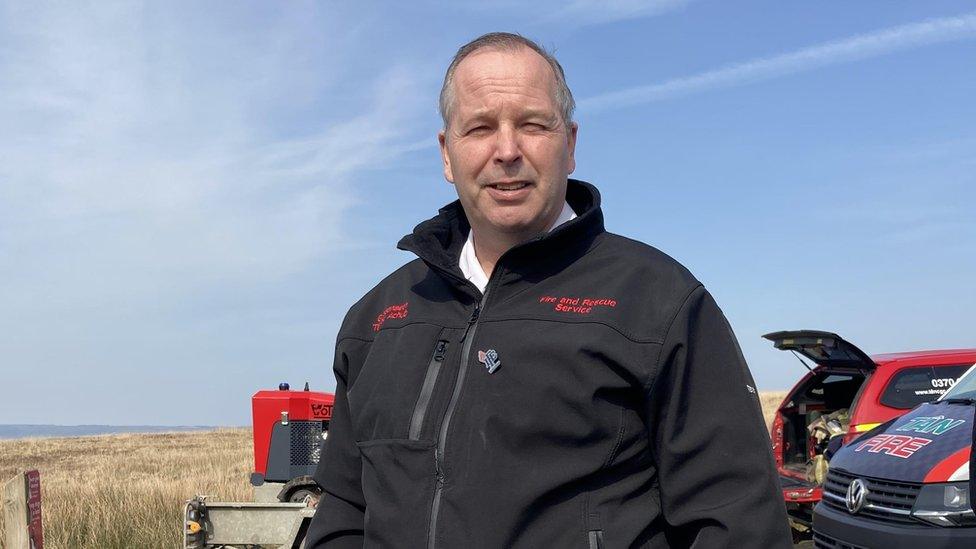
Neil Evans, of Mid and West Wales Fire Service, urged farmers and landowners to let them know about controlled fires
Being called out to a deliberate grass fire means diverting engines that may be needed elsewhere.
Mr Evans said: "If there was a road traffic collision or a property fire, then the resource attending that would take longer than what would be locally available."
"[Resources] are very stretched at this point in time.
"We understand why it's happening, it is in the burn season, the weather is absolutely spot on for doing the activities that people want to do on their land.
"Yes it's legal, but they need to ensure that they inform us."
The picture across Wales
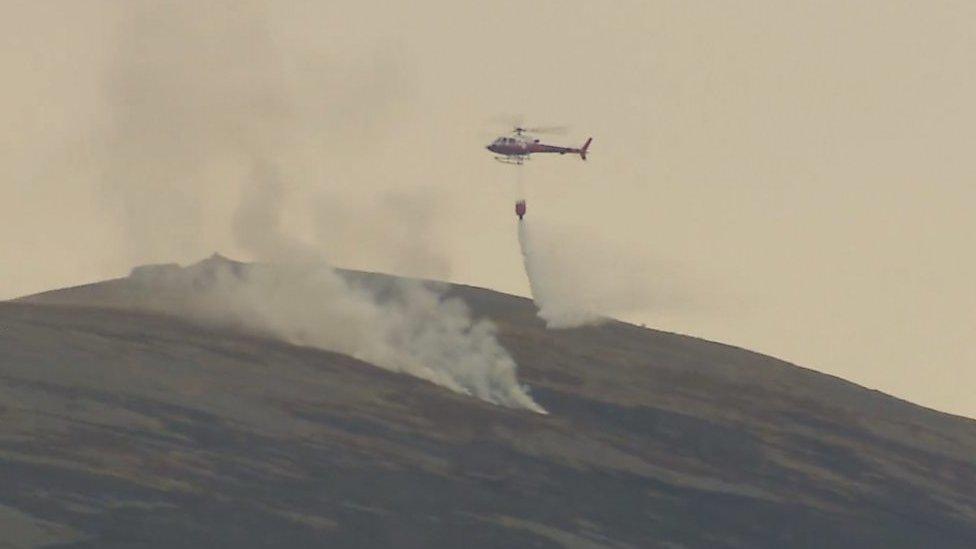
A helicopter was also used to help put out a blaze on Mynydd Mawr, Gwynedd
The grass fire in Gwynedd comes after Mynydd Mawr was "quite devastated" by a blaze in the same county.
Mid and West Wales and South Wales fire services also tackled fires in areas including Upper Brynamman, in Ammanford, Carmarthenshire, and near Crickhowell, Powys.
The service in north Wales said crews tackled fires at Rhiw, near Llanbedr in Gwynedd, and in Wrexham.
Incidents in Clynnog Fawr and Penygroes were also dealt with in Gwynedd, and there was a fire at Pant Glas.
In Pembrokeshire firefighters tackled flames in the Preseli hills.
Related topics
- Published23 April 2015
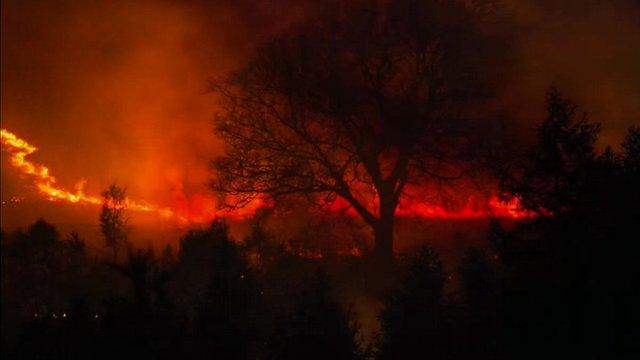
- Published25 March 2022
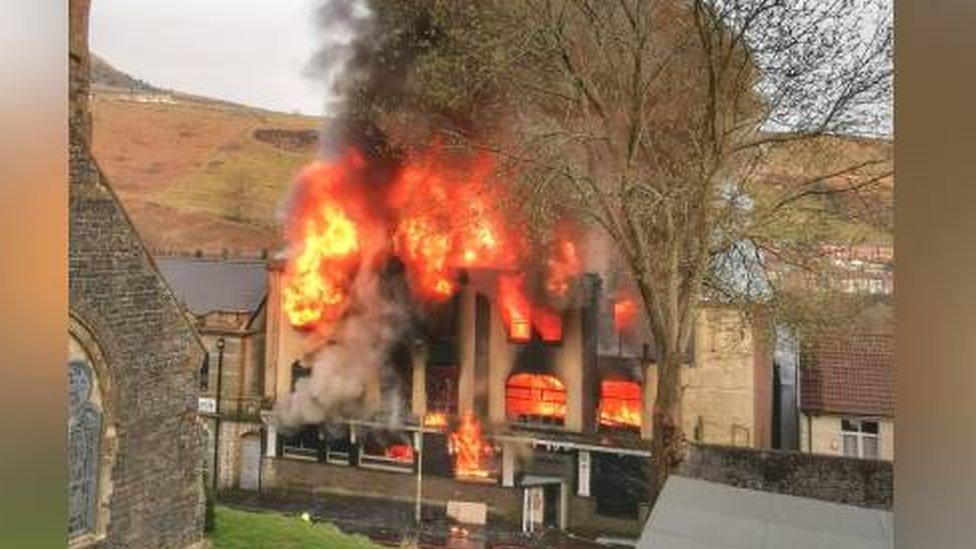
- Published22 July 2018
